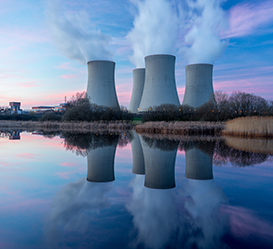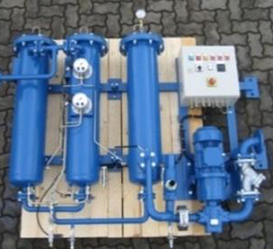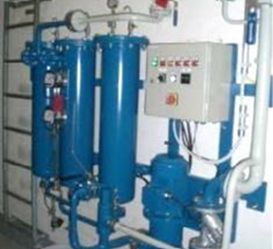2019-10-14

Initial Situation
Especially in nuclear power plants, safety has the highest priority. For this reason even smallest processes are monitored in detail.
In Switzerland the storage of the diesel for the emergency engines were identified as critical process. The fuel, stored in 50.000 liter tanks, can be contaminated with water due to changes in temperature. This water sinks to the ground of the tank and can cause problems during the operation off the aggregates.

Challenge
Four independent emergency power systems can be used in case of an incident. To ensure a frictionless operation of the emergency engines, a certain diesel quality is required. Low water content in the fuel is one of the main criteria. Water can cause corrosion, can be a risk for the engine injection nozzles or can build a good basis for microorganisms. This so called diesel pest is very dangerous, as this microorganisms create a kind of slime that can block filters, nozzles and pipes. In worst case the emergency engine is not able to start when it is required because of bad fuel quality.

Solution
The Filtration Group-facility in Hamburg is delivering fuel treatment systems for the marine industry for several years now. The proven technology from the marine industry can nowadays also be found in several power plants. The two stage systems separates particles and dirt in the first filter stage and separates water in the coalescer stage afterwards. The remaining water content is too low for the microorganisms to grow and avoids the dangerous dieselpest. The Filtration Group FTS can guarantee a continuously low remaining water content, which means that diesel pest will be no longer a problem for the customer. The operational readiness of the stored fuel is assured at any time.

Customer Value
The Filtration Group FTS provides several advantages to the power plant operator. For example a long time storage of the fuel is no longer a risk, reduction of the free water in the fuel continuously below the critical limit and cost reduction due to lower maintenance requirements and reduced wear. The replacement of no used fuels are no longer necessary and the inspections of the fuel quality can be reduced significantly.